How to Be Prepared for Difficult Times
This post may contain affiliate links. Read our disclosure policy here.
Are you ready for more difficult times? Do you know how to prepare your home and your family for things that might look different from normal? Today, I’m going to share some of my best tips with you on how you can be prepared and not worry about the future.

How to Prepare for Difficult Times
As I sat down to write this article, I was thinking…how do I talk about preparedness and being prepared without being a total “doom and gloomer” or going into what may seem like a super prepper mode? I’m not sure, but I will try it today!
Whether you believe everything that is going on in the news, the media, and the world right now, it’s a fact that times are changing. Some times in our lives are going to be difficult, and some will be easier. After writing this blog for over 14 years, it seems that I’ve already written through a few times that were good times to prepare. Those times inspired many of the articles that I will be linking to in this article today.
What I always think about when I start thinking about preparedness is that it doesn’t hurt anything to be prepared. Sure, we may have a little extra if we buy a little extra, but then we just use it up over time if we don’t need it during a difficult time. No big deal.
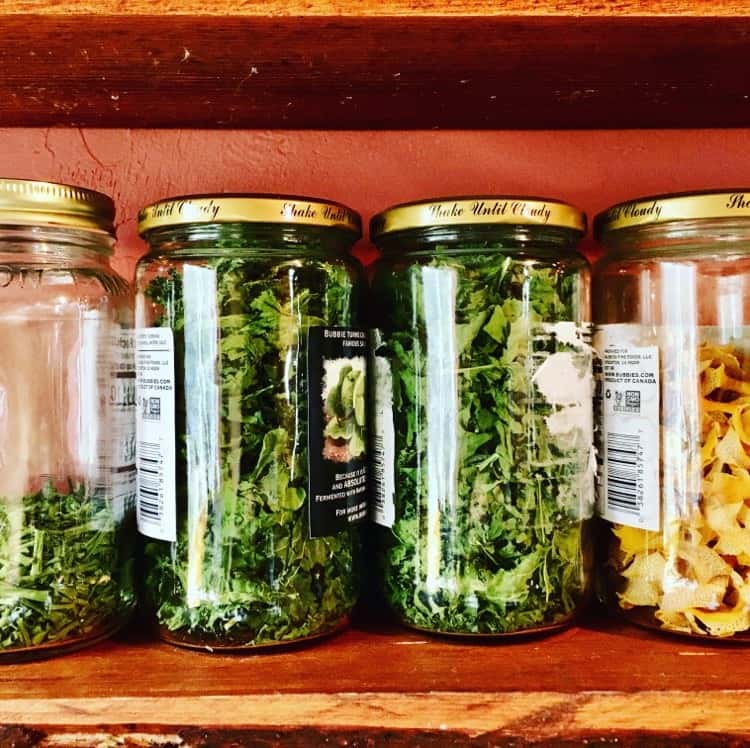
Why Should You Be Prepared
I won’t get into everything happening in the world in this present moment. There are plenty of other outlets, podcasts, and websites that you can glean that info from if you want to. Personally, I don’t follow the news, but my husband keeps me mostly up to date on things that I should know or might find interesting.
No matter what is going on in the world, here are some good reasons why you can prepare:
- Unexpected Job Loss
- Winter Weather
- National Shortages or Supply Issues
- An Unknown Difficult Situation (ie: pandemic panic)
Personally, most of our prepping is for the first two things on this list. When it comes to the other issues, I find it better to be knowledgeable than prepared. Instead of having some massive stockpile that’s good for 25 years, I’d prefer to know how to create alternatives with what we have, how to be self-sufficient, how to garden, and how to just not be dependent on a grid system in general.
Everyone will have their own reasons for prepping; no matter what, it’s good to have an emergency plan in place.
This year is our fourth year at our homestead. In the beginning, we spent some time meeting many of our neighbors, and they all separately told us the same thing…when it comes to winter out here, we need to be prepared. We should prepare not to be able to get to town (which is an hour and a half away anyway) and should prepare to deal with more wildlife than we are used to (mountain lions, elk, etc.), and we should be ready to have periods with no electricity.
As I mentioned above, your reasons for wanting to be prepared are probably quite different from mine (I hope you don’t have the mountain lion issue!), and that’s totally fine. Whether you are preparing for a disaster like earthquakes, floods, a hurricane, job loss, blizzards, war, or anything…. You can still use these ideas.
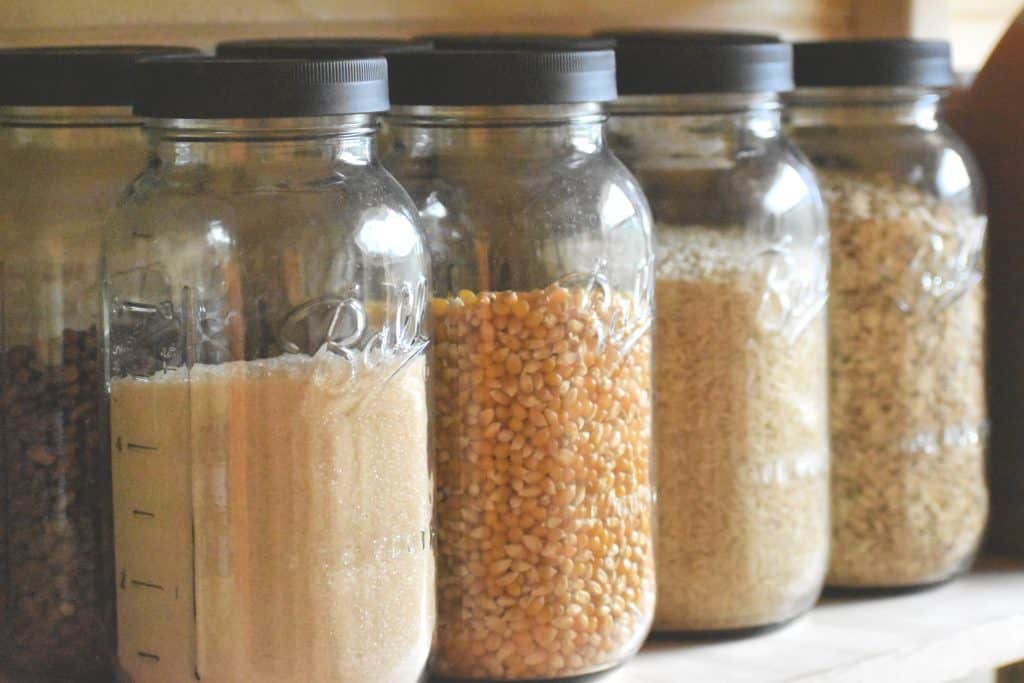
How to Decide What You Need to Prepare
Each of us is different; we lead different lives and live in different places, so what we need to prepare will be based on that and also your reasons behind the preparation. Because of that, there will be some generalizations in this article, or I will base ideas on our own reasons for preparing for difficult times.
- Consider where you live and what might be a factor in the coming year. Are you in an area prone to drought? Severe weather? Blizzards? Natural disasters? All of this will help you determine what you might need and what might be a good idea to have or a skill to know.
- Decide how long you’d like to be prepared for. Are you preparing for the long term? That will look completely different from someone who wants to be ready for something like a job loss, which may only be a 3-6 month issue.
- What do you need for peace of mind based on your location? For this, I don’t mean your geographical location, but rather if you live in a town, in the country, or in a very rural area. Each location may have access to things the other doesn’t and will also have challenges the other doesn’t.
- Do you have livestock or pets? What will you need to prepare for them?
- In your mind, does being prepared include learning new skills? If so, how can you accomplish this?
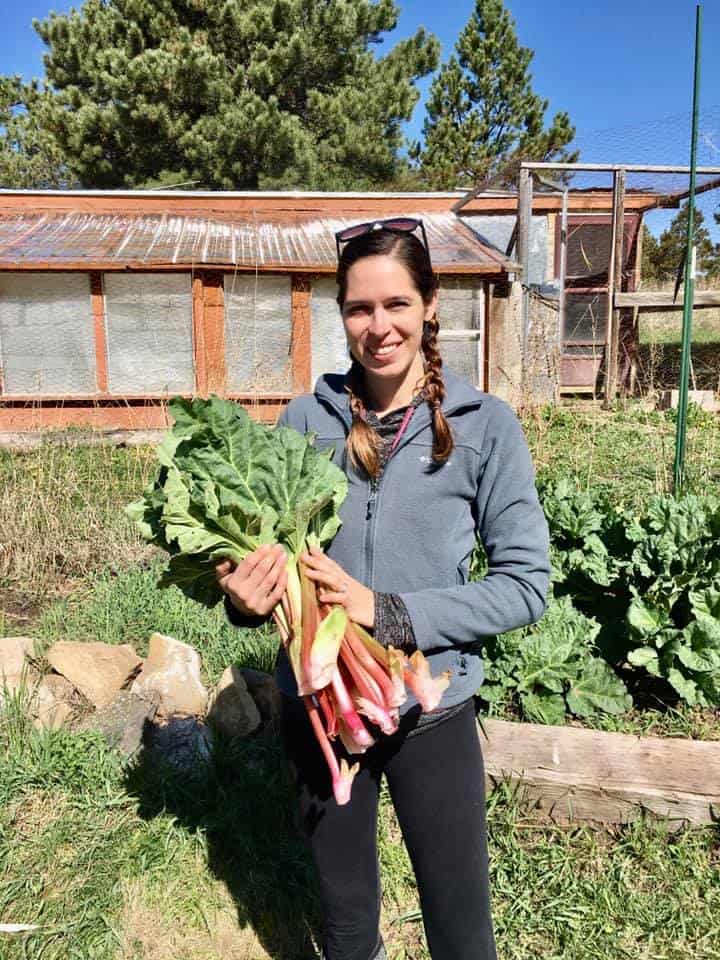
Check Your Emotions
Preparedness and thinking about difficult times can really play on your emotions no matter what is the reasoning behind your prepping. I want to remind you that we have no need to live in a spirit of fear or worry about what may or may not come.
I’ve heard from fellow Christians that we shouldn’t have to be prepared; after all, God takes care of the sparrows, right? We believe that we can trust God to supply our needs, but I also think that God gave us knowledge and skills, and I will use that knowledge to let God help to supply our needs before a crisis comes. God created seasons of life and seasons on the earth, and the most abundant season is in the summer and fall. It would be prudent of us to use God-given talents and abilities to preserve this abundance for the next season of life.
I know that some will disagree with me, and that’s totally fine. I just wanted you to understand the thoughts and emotions behind our being prepared for a difficult time. We do not fear whatever time is to come, but we let God direct our actions and help us to heed alerts and warnings.
Proverbs 31 tells us to prepare and know skills.
To those who believe God will take care of them…yes he will. But afterall, Noah had to build the ark.
Jerilea, Little House Living reader
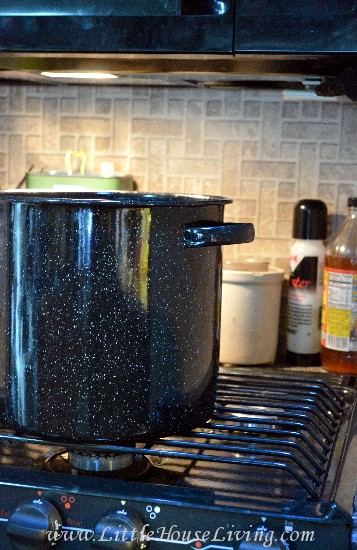
Practicalities to Prepare
When I think of preparing for the things I listed above, these are the practicalities needed should those events occur.
- Stored Water
- Stored Food
- Shelter
- Bill Pay
- Practical Skills
- Household Supplies
You might be able to add a few things to that. But I think it’s best to stick with the basics, and almost everything should fall under those categories. You need to make sure you have a roof over your head, money to pay bills to keep the family warm and safe, food and water to stay nourished, and practical skills to perform any tasks that might be necessary if you are not able to purchase certain things or travel to specific locations.
One area that I won’t focus on here, but you should also be prepared with is to have all of your sensitive documents together in one safe place. Insurance policies, passports, ID cards, birth certificates, important documents pertaining to your kids, and other originals or copies of important documents should be in a safe, accessible place.
Now I will take a little time and dive into each of these areas…
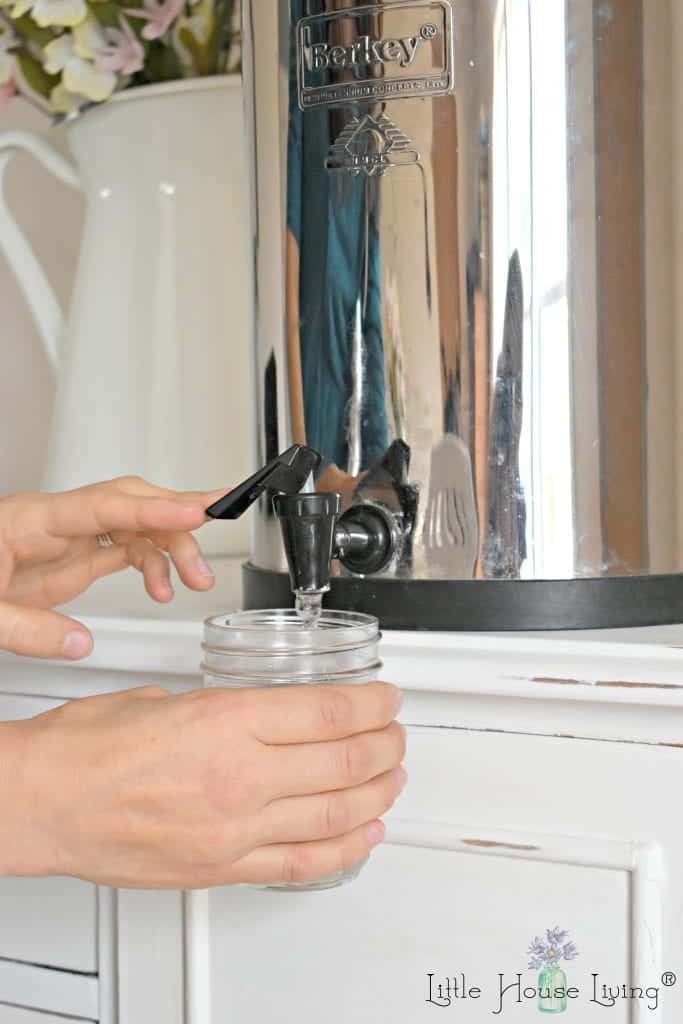
Storing Water
Water is the most important thing we need to survive physically, so it’s number 1 on my list. Water preparedness can come in many different forms, depending on what you are preparing for, how long, and what your current water setup is.
For fresh drinking water no matter what the condition… I highly recommend having a Berkey. We have 2, one for each floor in our new home (a Crown and a Big Berkey). I have filtered some of the nastiest water I’ve ever seen (and smelled!) with my Berkey, and I’d never be without it. You can read my review of the Berkey Water Systems here.
If you have well water…you may want to consider some kind of pump replacement or a non-electric pump if the electricity goes out in a storm or if you are unable to pay for electricity to run it.
If you are on city or rural water… consider water storage. A good number to remember is to store 1 gallon of water per person per day. (I recommend 3-7 days of water storage if possible.) I have 5 of these Aqua-tainers which hold 7 gallons of water each. That’s enough for 1 week for our entire family. I store them in the root cellar so they don’t take up space in my house. Beyond that, consider an alternative source to collect water, such as rain or snowmelt. I should also mention that we have a 750-gallon rainwater collection tank. It’s a game-changer!
If you haul water… the same as above. Consider water storage and look for alternative methods of collecting water. Consider an additional cistern. We have 2 large cisterns and are putting in a third in addition to our rainwater tanks.
Bottled water is ok to store but shouldn’t be your main source for water storage unless that’s all you have space for.
Don’t forget to store some water for your pets or livestock!
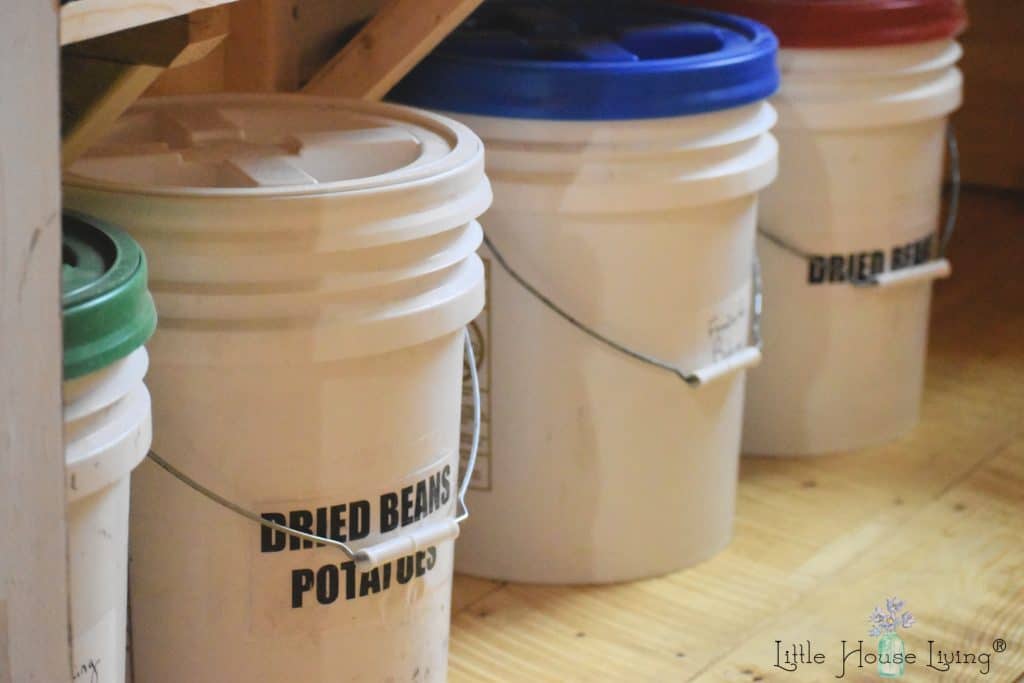
Stored Food
Again, how much food you store is based on what difficult time you are preparing for. For sure, I would have no less than 1 month’s worth of food to feed my entire family on stock at all times. As we are prepping for a bad winter, my food storage is much larger than that, considering I may have limited access to a grocery store, and plus, food is expensive in the winter where we live!
I’ve written many articles on stocking a good solid pantry, so for further reading on this topic, I recommend you check out all the articles below.
Frugal Staples for Every Pantry
How to Build a Food Stockpile with $5 a Week
You will also need an excellent place to store this food and water to keep it safe and protected from pests. I recommend creating a cold storage area. You can find tons of frugal cold storage ideas here.
Do you think the prices of food are going to go up soon? Here are some ideas you can use on Prepping for Higher Food Prices.
I get some of my bulk food goods from Azure Standard.
Don’t forget that this applies to your pets and livestock as well! Know how much food they need for however long you are prepping for, and be sure and store that in a good place as well.

Shelter
As Dave Ramsey says, “Always cover your four walls first!” This means you must ensure your family has shelter no matter the situation.
This does NOT mean you need to move to a remote location and build a bunker! It just means that you should ensure your home is a good place of protection, and if you have a mortgage or are paying rent, be sure to put aside the money, especially in the event of a job loss.
If you are prepping for winter, use these Winter Weather Preparedness Tips to help prepare your home.
If you are preparing for something unexpected, one thing to keep in mind is that your home should be your haven. Prepare it as such! Make sure it’s your little safe place of sunshine, even if the world is rather dark. Getting a good night’s sleep is always important to keep yourself in the right mindset and preserve your energy in crisis mode.
Merissa: I am 83 yrs old and a widow. I started “Prepping” several years ago and am glad I did. My family laughed at my supplies (I did not hoard) but had sufficient supplies for several months. When the pandemic hit, I sat safely at home, knowing I had everything I needed including a good supply of water. I had the last laugh when my daughter came to me looking for toilet paper, cleaning supplies, etc. Keep up the good work and encourage others to be sensible. We never know when we need to be prepared.
Elizabeth, Little House Living reader
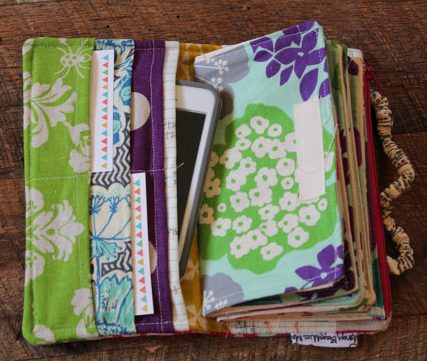
Bill Pay
If you are preparing for a job loss or not being able to get to work, you need to be preparing in advance for paying bills even with no income coming in. Dave Ramsey recommends you set aside 3 to 6 months’ worth of cash to pay your bills in a savings account just in case something should happen and I agree. If this is a difficult task to do, consider how difficult it would be to try and pay those bills with no income coming in.
Try using some of these Extreme Frugal Tips to cut your current monthly living costs down as far as they go and put everything you can into savings. I bet you will be surprised how quickly the money adds up when cutting out all unnecessary spending!
Depending on what kind of difficulty you are preparing for, you might also want to consider eliminating specific bills instead of just saving up the money to pay for them. Use off-grid devices when you can, cut down your water usage (if you are paying for it), use these extreme ways to save on electricity, start growing a garden, and stop paying for food. The sky is the limit when it comes to ways that you can dramatically cut those monthly expenses to build that emergency fund!

Practical Skills
I think this is so SO important, and it’s so often overlooked in these prepping articles.
Honestly, storing up food, water, and money will only get you so far and last for so long. Learning skills like gardening, canning and preserving, sewing and mending, building and carpentry, and even bartering…these skills will last a lifetime and will benefit you greatly no matter what happens!
I’m always learning new things, and I love it! Right now, I’m taking the Master Preserver classes from my local Extension office, and it’s been great to get a refresher on canning and preserving. I also watch videos on gardening and am currently doing the Free Permaculture year-long course.
This past year, I learned more in-depth first aid from a nurse.
Here is a list of places where you can find free online classes. YouTube is another excellent resource. (Here’s the Little House Living channel!)
Pick something you love and start learning a new skill. If you have children, the best part is that they will likely be interested in what you are learning and want to learn alongside you. My children always ask questions about what I’m learning, and I find ways to incorporate new things into our days as they learn right with me.
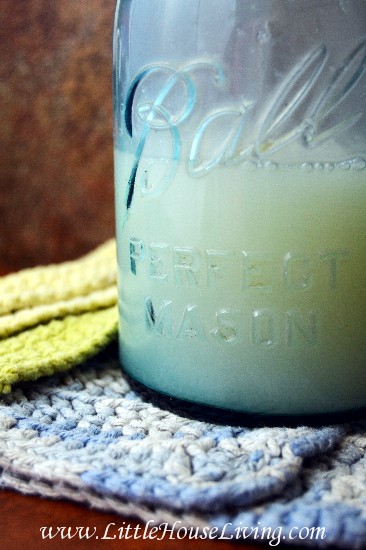
Household Supplies
We have all realized the importance of toilet paper in the past couple of years, haven’t we? A healthy stock of household supplies is as important as many other things on this list. You should have the basics, like toilet paper, shampoo, toothpaste, dish soap, etc. Things that you use every single day.
The best way to know how to stock up on these items is to list them as you go about your day. It will be easy to see which things you use. Then, you’ll need to know how fast you go through those items to know how much you should have on hand. You can do this by guessing or by observation.
For example, our family uses 2 rolls of Scott 1000 Sheet Toilet Paper in a week. If we are sick or have company, we might use a little more, but that means if I wanted to stock up for six months, having at least 60 rolls on hand would be a reasonably safe bet.
Through observation, I also know that I use two containers of shampoo in a year and about one container of dish soap every other month. Knowing these things makes it incredibly easy to stock up without overbuying.
If you prefer to make your household supplies like deodorant, lotion, and other similar things, you should also have stock of the supplies you need. Just know how much you can make with what you have and how long that will last you.
Having the supplies to make the items is sometimes a better option, just because there are so many different things that you can make with the same few supplies. It may open up your possibilities if you run out of things. Find my big list of all the stuff you can make yourself here.
Don’t forget about things like necessary clothing for the seasons (including warm clothes), feminine hygiene products, diapers, cloth rags, medications, batteries, etc. Also, do not forget any supplies needed for special needs family members.
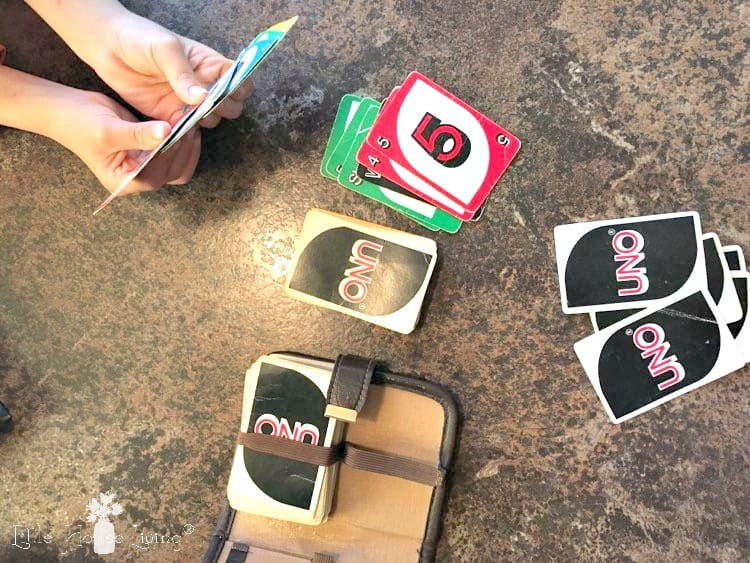
Fun Times
I know I didn’t include this in my list above as some may not find it necessary, but I believe a cheerful and happy heart is necessary for difficult times.
This is why I like to have fun things on hand when I prepare for the winter!
For us, this could be a variety of things. Here’s some of the stuff I’m gathering up for this year:
- Puzzles (I like the ones with the Buffalo pieces)
- Books (Mostly from Thriftbooks)
- Games (Here are some of our favorites.)
- Baking Treats (Things like candy pieces and other goodies I don’t buy often from Vitacost)
- More things from this article
- Garden seeds for Winter Gardening (Both for practicality and for just seeing something green. I ordered them from Azure.)
No matter what difficult time you are preparing for, having a good stock of fun things for you and your family will help keep your mind busy and keep your spirits high.
I also did a little garden chat about this topic, so if you want to watch the video, you can check that out below.
I hope that now you have more clarity when preparing for whatever difficult time you believe lies ahead for you or your family. Remember, there are plenty of things that you can do to prepare, and there is no reason to worry about your future!
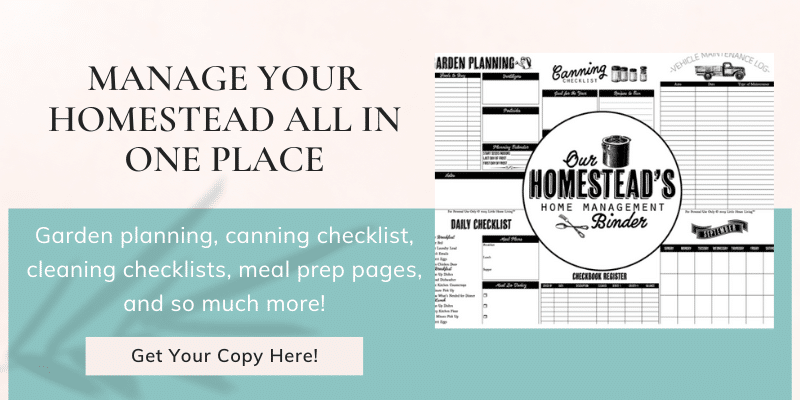
More Articles on Emergency Preparedness
- How to Prepare for a Blizzard
- Practical Food Storage and Preparing For Price Increases
- 13 Ways Anyone Can Prepare for a Power Outage
- Preparing for an Extreme Heat Wave
- Creating a Winter Emergency Supply Kit
- Prepare for a Tornado and Create a Mini DIY Emergency Kit
What are you preparing for, and what things are you doing to prepare?
Did you find this post helpful? Be sure and share with your friends on Facebook, Twitter, Instagram, Pinterest, and through Email using the sharing buttons below!

Merissa Alink
Merissa has been blogging about and living the simple and frugal life on Little House Living since 2009 and has internationally published 2 books on the topic. You can read about Merissa’s journey from penniless to freedom on the About Page. You can send her a message any time from the Contact Page.
This article on How to Be Prepared was originally posted on Little House Living in July 2020. It has been updated as of December 2023.



Thank you!! This has been on my mind lately and causing stress, these actionable steps really help ease that feeling. I’m looking forward to reading this again slowly and making a plan 🙂
I’m so glad you found this to be helpful!
Hi Merissa. Thank you for you tips. Very helpfull. Indeed it is important to keep your mind clear. As a Dutch living in Kashmir (India) My husband and me we are also prepairing. Very undindian because they live by the day. Which is sometimes also nice but now not. Funny to read how God takes care of its sparrows. Here the same (although we are Muslims) Allah will provide you a well but you yourself have to take the water out. Please keep writing your nice content! You are such a inspiration for me! Thank you.
I’m with you guys. No matter what path you follow, God gave us all the where-with-all to get off the tracks when the train is coming.
Hi been awhile since I signed on. Have been following you since you were in the trailer. Added to your family, restored a house and planted wonderful gardens. Happy New Year! Hope 2022 brings some happiness to our country. Are you building house three?
Thank you for being such a long time reader! We bought land last year and built a house in the woods. It’s not quite done but very liveable and we love it!
Hello Merissa!
What a nice posting! So many blogs and videos go into pretty scary stuff it would be normal to get into worry mode. Your point is thoughtful preparedness rather than reactionary action. I remember when the pandemic first hit my area: I saw several people in the grocery store who were clearly trying to stock up all of a sudden, but were uncertain as to what to stock up on.
I prefer your calm and strategic action plan.
BTW – Nice reference to God taking care of the sparrows. When my kids were small, I’d reference that too, but added “and if you watch the sparrows, you’ll see how hard they work!”
I did not revisit all of your links, so maybe you’ve already mentioned this: Try to have nails, screws, and some lumber put aside in case you need to board your windows, and keep a hammer, screw drivers and a hand saw within easy access. A large plastic tarp or two and rope is great to have in case of damage from tree/branch falls, or broken windows from storm damage. It won’t be a permanent fix, but could keep the snow/rain out of the house or redirected to prevent further damage.
We have ancient trees around two sides of the house. An old 83 ft maple was 10 feet from the house and was blown over and uprooted last October. Thankfully it only scraped down the side of the house but it would have certainly crashed through the attic and both floors has it fallen just 10 degrees closer.
You can’t prepare for everything and we can have so much anxiety in trying to. I appreciate your calm and rational presentation.
Just one more thing in case it’s not mentioned – Get to know your neighbours and community. We can all help each other!
Thanks so much Merrisa!
Best wishes always!
I have been looking for an article that explains prepping in an easy to understand way for friends that are “interested” but don’t know where to start after they get their supply of toilet paper. This is perfect, especially with all the extra articles you have referenced . Thanks. Really enjoy following Little House Living.
Thank you so much for this article. We are moving into our first home hopefully within the next couple of weeks. First time homeowners and I am a bit overwhelmed with everything ahead, and excited. We are also expecting a baby girl in about 1.5 months and have a 3.5 y old boy. Between all of that, and the pandemic, and the winter coming, I am really trying to assess how we are going to handle everything. This was really helpful to think through things. We will have well water and it didn’t even cross my mind what will happen if the power goes out!
Thank you,Merissa….i have been a fan for years.
I love what you said about God. But as I always say, he expects you to do your part
Great advice! I love your comment about dooms day. I’m not gonna be there either! We also use the same toilet paper. But having 6 kids, we go thru about a roll every 3 days. I’ve got about a 6 month supply right now! Stocking up before winter!
Do you keep the five 7-gallon jugs filled with water at all times or do you start to fill them when you feel an emergency is coming? How long can you keep water in the jugs before worrying about how safe it is to drink?
We keep them on hand at all times but we are on cistern water so if we forget to check the tank and run low, they come in handy 🙂 I empty and use the water once a month to keep it fresh.
You can add a few drops of chlorine bleach per gallon of water (less than 1/4 teaspoon) and the water will last at least a year. Milk jugs aren’t good for longterm storage, but they will last a year or longer. The heavy clear plastic gallon jugs used for some brands of bottled water are excellent, but most of us are looking for something free, right? Readers who live in cities, especially in the older parts of town, should check with their city water department to see if they have gravity-fed water. This usually means river water piped into town from higher elevation areas. Since pumps aren’t involved, the faucets still turn on even when the electricity is out. In the 1950s and 60s, all of the water in Portland, Oregon (pop. 400,000 at the time) was gravity fed. As the city has grown, wells (with pumps) have been added. Some older parts of town may still have 100% gravity-fed water, or maybe all of the water is mixed together? If you have city water, these are questions definitely worth asking.
When I have stored water in milk jugs, after about a year, I’ve used the water for flushing or in the garden and recycled the jugs.
nice post. only on the doomsday if you are referring that as great tribulation I invite you to reconsider it. everybody will have that opportunity to show loyalty to God.
That was an interesting post.i have been preparing for winter too, and you always have great ideas and advice.thank you.
I am glad to know that you are well prepared, because everytime I listen to the news about the US, it makes me worrying for you. Thank you for all your advice. You already helped me a lot to start preparing. Now we are pretty well off. God bless and keep you.
Wow Merissa, you really nailed it with this post! We should work like ants and trust God for what we don’t know. Thanks, this was very encouraging!
Thanks, I don’t do all of this. My daughter in law is moving into a new home. I have given her your blog as a resources. Good information.
Merissa: I am 83 yrs old and a widow. I started “Prepping” several years ago and am glad I did. My family laughed at my supplies (I did not hoard) but had sufficient supplies for several months. When the pandemic hit, I sat safely at home, knowing I had everything I needed including a good supply of water. I had the last laugh when my daughter came to me looking for toilet paper, cleaning supplies, etc. Keep up the good work and encourage others to be sensible. We never know when we need to be prpared. God Bless.
Elizabeth, I am a few years younger than you. I started keeping a lot of food on hand after an epic 48-inch snowstorm in Eugene, Oregon, in 1969. My husband was in graduate school and we were living on my $100 week paycheck. Fortunately, I’d gotten paid two days earlier and shopped for groceries. Otherwise, when the blizzard hit, we probably would have had an egg and half a bottle of ketchup in the fridge! I swore I would NEVER be unprepared, and I haven’t been. My sister is very urban (and knows everything, LOL) and always kind of made fun of me as a prepper. However, when SARS hit a few years ago, her son-in-law, who is a physician, told her she should get ready for a pandemic. She called me for advice! I loved saying “I told you so,” and I’ll bet you did, too. (She wasn’t real well prepared for Covid, but much better than many others).
Bravo Elizabeth. I’ve been prepping for many years also and when this pandemic hit us in 2020; I’ve already had enough supplies to keep me happy and well supplied in my home. I’m a senior citizen also and don’t need to take any risks out into the crowds. Bless you for your advanced preparedness.
Hi Melissa. I have awful cell phone service where I live. I have 100 foot trees everywhere. I have been gleaning recipes and the occasional project from your blogs. I usually lose my connection before I am able to read your articles. I am a 60+ disabled person who has lived frugally all my life. I enjoy gardening and canning, freezing and drying and pickling the bounty that I grew. The kids are grown with thier own families. I have found that we can’t consume all that beautiful produce. I hate waste (and doing all that work for nothing). I am no longer able to tend the big garden. I have prioritized what I will actually use in 1 years time. I have found that there are quality commercial products that I enjoy. I coupon and buy a little extra here and there and keep my pantry organised. You don’t need to buy a pallet full of anything to be prepared (toilet paper, anyone). Just a little extra here and there and my pantry is rounded out. I still grow my herbs and dry them, as well as favorite veggies. My point is don’t go nuts or hoard out if panic. Just prioritise what you will use, keep the basics on hand (flour, sugar, etc) and you can always whip up a crumble or a crisp at a moment’s notice. Take a deep breath, keep calm and make lots of lists, it’s not that hard to feed your family well. Your blog is inspirational and you have a grateful fan.
Love this article ! I always try to keep extra on hand for anything that might happen in our life.. One thing I might add to having extra is being able to help someone else out with what you have. Our DD moved and was on a super tight budget didn’t have much and I let her come in and “shop” for what she needed for her home. Also I have a Sister who doesn’t understand having anything extra in her home. I think a good one to read is Genesis, Joseph interpreting Pharoahs dreams.
Someone once said something similar to me about not needing to prepare for emergencies. I reminded them about the parable of the foolish virgins and the wise virgins. Maybe that’s where the old saying “the Lord helps those who help themselves” came from.
Great post, Merissa. Very practical and calm, and that’s what we need right now.
Hi, I’m from Lancaster County,pa. We are fortunate to have fresh fruits and vegetables for sale in our area.I’m 72 and still grow tomatoes..potatoes onions and raspberries.I love your ideas and your Christian faith.Thanks !
“If ye are prepared ye need not fear”
Proverbs 31 tells us to prepare and know skills.
To those who believe God will take care of them…yes he will. But afterall, Noah had to build the ark.
Thank you for this very good article. I appreciate all the tips, hints, resources, etc.
You’re right, God provides not just for us but thru us. Remember Joseph in the Bible, he was led to prepare for famine
Absolutely! I often think about how we can be a resource to others if times get even more difficult.
Hi Merissa: This is very timely post. I live in a large city so getting to the store is not an issue like for someone like yourself who is in a rural area. However, due to the pandemic and previously when there were hard economic times, I too, believe in stocking up whenever you can. I started on a pantry system when my kids were little so I wouldn’t be running to the store everyday and it did save money to buy some things in bulk. I do still have a garden and am still learning (at age 63) about preserving the bounty. I believe that everyone should learn life skills like gardening, canning, freezing, sewing, building etc. just so that you will know what to do if the need arises. I also keep an emergency kit of extra water, candles/matches, extra batteries and a couple of those emergency blankets on hand. I too, believe in God but also believe that God expects us to do our part to be prepared to keep ourselves and family safe. I pray a lot for guidance in this area. I have seen Him supply the resources but He leaves it to us to do the work. I learned some of this from my mother who went through WW2 and the Great Depression. She learned how to stretch every penny and then some. What I learned from her got me through some really tough times. Young people today need to learn from the past in order to keep themselves well in the present and prepare for the future. Thank you for all that you are doing.
this is not the kind of preparing I was thinking in terms of
Appreciated your article, Melissa. I was most taken with the recommendation to build skills as well as careful stockpiling.
Good morning, Merissa.
This is excellent advice! Thank you so very much for posting this information.
Even though I’m not a homesteader, but an urban dweller at present, I did get lessons from my parents growing up how to prepare for a rainy day . Skills are one of your best gifts. Gardening, sewing, preserving, living frugally, saving money for hard times if they come, paying off debt if you can. Recycling what you can, glad to have been taught a lot of depression skills from grandparents. Happiness is you Merissa and Little House Living, and your references to our Lord. I believe He there for us always but also he gave us a brain to help ourselves. Also get to know your neighbors and build a community that takes care of one another. 🙏
These are some great tips. On the note of Christians not being here for the end of the end times. Matthew 24:13-14 tells us believers will be here until the end.
Hi Merissa:
I’m a bit late replying to this post but there is another area to cover for preparedness. My oldest son and I were talking about this last week at dinner. When I mentioned about have supplies on hand etc. he mentioned to me that people should think about what they would need to take with them should their home and/or area become inhabitable and they have to leave. He and his wife have prepared what they call “go bags” that include a couple of changes of clothes, some emergency rations like protein bars, toiletries, first aid kit etc. They also have a list of what to grab for last minute including stuff for their 2 cats which they would not leave behind unless there was no other option. I have not done this yet for myself but am thinking about it. Just wanted to put this idea out there.
These articles of yours bring hope and encouragement during these times we find ourselves in. Thank you for the practical reminders that will definitely help, and aren’t really taught or practiced as much, but probably will start to be the norm again.
I used to dread the thought of prepping but I’m actually a little excited now. Also…very convicted regarding how much dish soap and toilet paper we use LOL Thanks for a great article!
Thank you for reviewing these topics. I am a 76 year old widow and have been educating and preparing for my family and myself since 1999. I, too, found myself comfortably situated during the pandemic, but will continue to be prepared for tough times.
I love your ‘Trust God AND your abilities’ adittude’ I rember the story of the 3 talents – where the man that put in the work and the sweat got the greater reward.